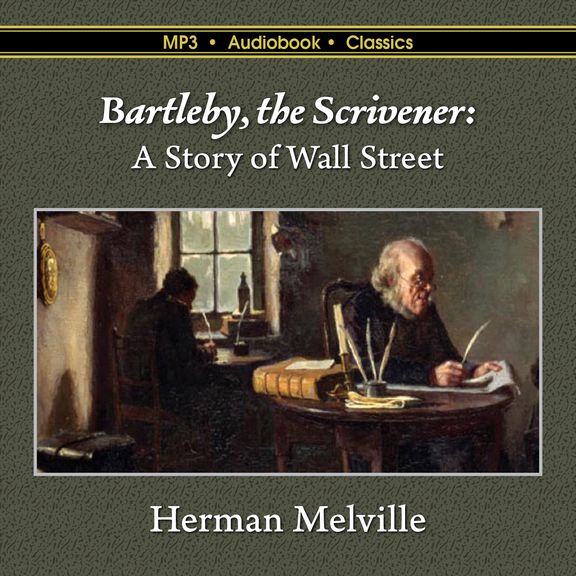
Bartleby, the Scrivener
By Herman Melville
In an October 1939 radio broadcast Winston Churchill described his difficulty in understanding the actions of Russia by saying “it is a riddle, wrapped in a mystery, inside an enigma”. The remark could easily have come from the narrator of Melville’s Bartleby, the Scrivener: A Story of Wall Street in trying to explain the baffling behavior of the title character, a clerk employed at his law firm. Bartleby has been engaged to help with a surge in business and performs admirably until one day he declines to proofread a document with the statement “I would prefer not to”. He refuses more and more assignments with the same response until he spends long periods staring out the window at a brick wall. The narrator attempts to reason with him and understand, but to no avail. One Sunday he stops in to find that Bartleby is living at the office. Too timid to evict him, the narrator moves the office instead. The new tenants soon ask for help in removing Bartleby, who by now sits on the steps all day and sleeps in the doorway at night. Before long he is removed and tossed in prison. The narrator visits and bribes a guard to make sure he eats, but learns a few days later that he had “preferred not to” eat and has died of starvation. Critics and scholars have interpreted the curious character from a variety of perspectives over the years. While no one is quite sure what it all means, they agree that the story is the masterpiece of Melville’s shorter works.
- Bartleby, the Scrivener – Part 1 Herman Melville 35:20
- Bartleby, the Scrivener – Part 2 Herman Melville 33:37
- Bartleby, the Scrivener – Part 3 Herman Melville 25:27
- Bartleby, the Scrivener – Part 4 Herman Melville 20:45


